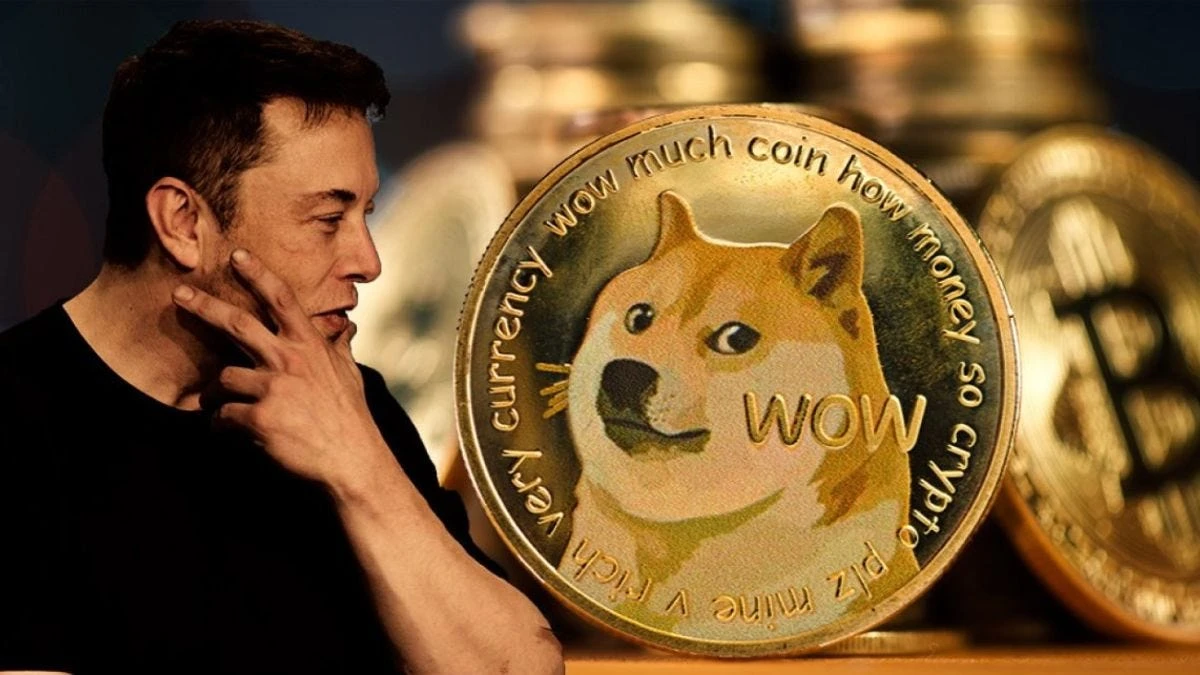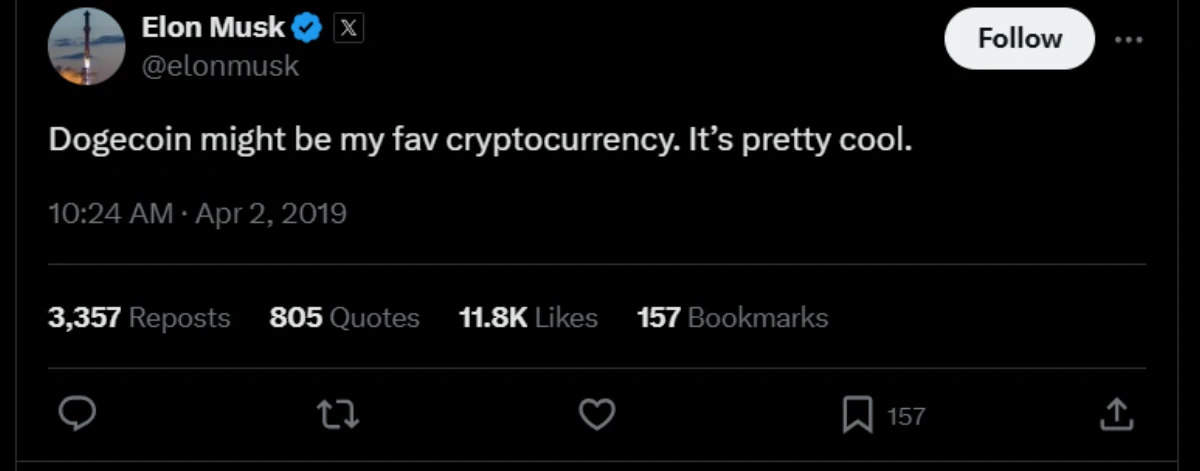Learn about Dogecoin's rise, its meme origins, and how Elon Musk's influence shaped its success and future in the cryptocurrency world.

Dogecoin, the cryptocurrency originally born as a joke, has surged in popularity in recent years—largely thanks to the high-profile endorsement of tech mogul Elon Musk.
While the cryptocurrency landscape is filled with numerous digital currencies like Bitcoin, Ethereum, and Ripple, Dogecoin has carved out its unique niche, with Musk’s public fascination playing a significant role in its meteoric rise. But what exactly is Dogecoin, and how did Musk come to be so intricately linked with its success?
The Birth of Dogecoin
Dogecoin was created in December 2013 by software engineers Billy Markus and Jackson Palmer. The coin was a lighthearted parody of Bitcoin and was inspired by the "Doge" meme featuring a Shiba Inu dog. At its inception, Dogecoin was never intended to be taken seriously. It was designed to have fun with the world of cryptocurrencies and capture the spirit of internet humor.
Despite its playful beginnings, Dogecoin gained a loyal following. Early adopters and communities, particularly on Reddit and Twitter, embraced Dogecoin as a way to tip content creators or make small donations. While Bitcoin and other digital assets were focused on being high-value stores of wealth, Dogecoin was aimed at being a fun, easy-going way to participate in the cryptocurrency space.
Musk’s Influence
Elon Musk is known for his ventures with Tesla, SpaceX, and Neuralink, Musk is one of the most influential figures in the world. His social media presence, particularly on Twitter, has been pivotal in shaping trends and sparking market movements. In the case of Dogecoin, Musk’s tweets and public commentary have had a profound impact.

Musk’s association with Dogecoin began around 2019, when he posted a tweet referring to Dogecoin as “as his fav cryptocurrency.” His lighthearted endorsement quickly gained traction, with supporters rallying behind the idea of Musk as Dogecoin’s de facto champion. But it wasn’t until 2021 that Musk’s influence reached its peak. His tweets became almost synonymous with Dogecoin’s price surges, leading some to coin the phrase “Elon Musk’s Dogecoin.”
In addition to his endorsement via social media, Musk made several high-profile comments about Dogecoin that stirred the crypto world. In May 2021, for instance, he appeared on Saturday Night Live where he referred to Dogecoin as a "hustle," causing a short-term dip in the coin’s value. Despite this, Musk continued to make waves with his Twitter posts, which ranged from calling Dogecoin “the future of currency” to expressing his admiration for the coin’s meme-like nature and the community surrounding it.
Dogecoin’s Value and the Role of Musk
Musk’s tweets and comments have contributed to significant price swings for Dogecoin. A single tweet from him could send the value of the coin soaring to new heights or cause it to plummet. This level of influence has led to both praise and criticism, with some applauding Musk for bringing attention to a fun and accessible digital currency, while others criticize him for market manipulation.
One of the key dynamics driving Dogecoin’s value is its decentralized, community-driven nature. While Bitcoin is seen by many as a store of value or “digital gold,” Dogecoin’s focus is on being a more accessible and fun cryptocurrency. It has a much larger supply than Bitcoin, and its inflationary model means that new coins are minted continuously, which has kept the value of Dogecoin lower compared to Bitcoin. This gives it a different kind of appeal, particularly for those who see Dogecoin not as a serious investment, but as a fun asset to trade or use for small transactions.
Musk’s involvement with Dogecoin has also sparked discussions on the role of celebrities and influencers in the cryptocurrency market. Is it responsible for someone with such power and influence to make public statements about a volatile asset like Dogecoin? Some argue that Musk is merely having fun and offering his followers a chance to participate in something lighthearted. Others warn that his influence can create a speculative bubble that could ultimately hurt small investors.
Elon Musk’s Vision for Dogecoin
Elon Musk has often spoken about his vision for Dogecoin as more than just a meme coin. In 2021, he tweeted about working with developers to improve the network and scalability of Dogecoin, suggesting that he saw it as having real-world potential beyond its meme status. Musk even mentioned the idea of Dogecoin becoming a universal cryptocurrency for space exploration—a concept that has captured the imagination of many fans.
Additionally, Musk has praised Dogecoin's ability to handle microtransactions efficiently, especially when compared to Bitcoin, which can be slower and more expensive for small payments. This makes Dogecoin an attractive option for everyday users and companies looking for a cheap and easy way to send money across borders.
Despite these forward-looking statements, there is still uncertainty about whether Dogecoin can transition from a meme-inspired coin to a serious contender in the cryptocurrency space. Its decentralized community has remained active, but whether Dogecoin can scale successfully and maintain its place in a competitive market remains to be seen.
Conclusion
Dogecoin’s rise to prominence has been a remarkable tale of how internet culture, cryptocurrency, and a charismatic billionaire can intersect in unexpected ways. Elon Musk’s role in the Dogecoin story has been central to its rise, and his continued interest in the coin has sparked both optimism and skepticism among crypto enthusiasts.
While Dogecoin’s future remains uncertain, its journey is a testament to the power of community-driven projects and the impact that influential figures like Musk can have on emerging technologies. But for now, it’s clear that Dogecoin’s place in the cryptocurrency landscape has been forever shaped by the actions of Elon Musk.

